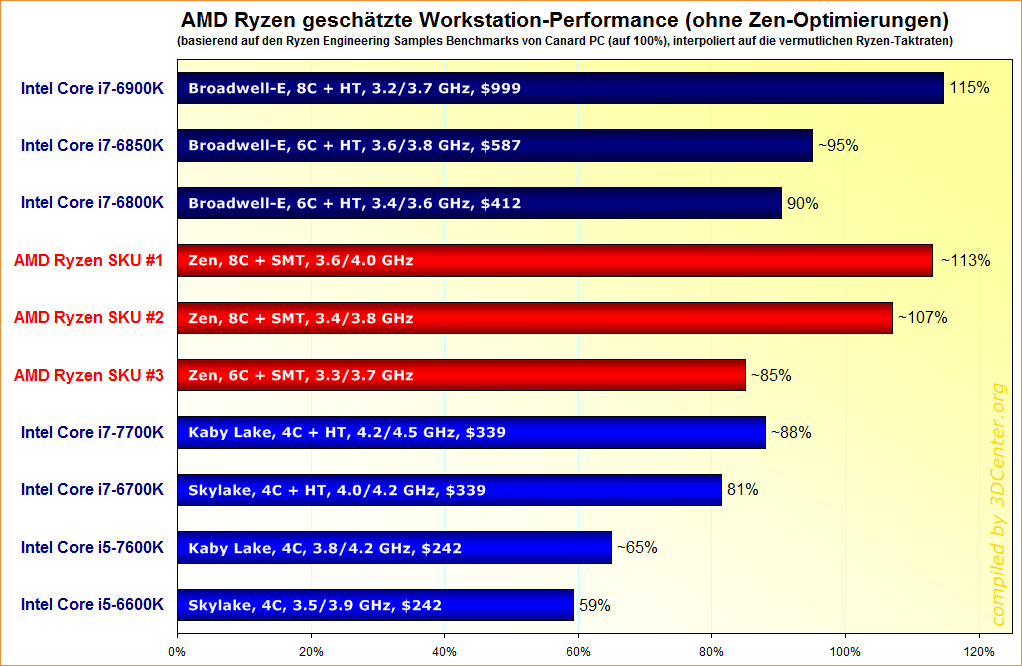In that graph, they assumed 6c/12t part would be 3.3/3.7. Top 6 core part looks to be 3.6/4.0. Early reports THOUGHT it would 3.3/3.7, but apparently not. This likely means Ryzen 1600X will be faster than the 7700k in multithreaded applications/content creation. But obviously the lead will not be so dramatic as with the 8 core Ryzens. The 1600X's value will probably be based on a comparison with the 7600k, and it should dominate the 7600k in multithreaded applications, since the 7600k lacks hyperthreading. For gaming performance, I doubt the 6 core Ryzens will vary much from the 8 core parts. It will be slower than the 1800X, but not by much I suspect.

The above graph was an early estimation (before launch). Final clocks are higher than expected (3.6/4.0), but in the other hand reviews have shown that RyZen IPC is lower than expected. The lower IPC compensates for the higher clocks and the result is that the top 6C Ryzen, the 1600X, performs very much as above graph predicted for a SKU #3.
Anandtech has a modern estimation of the performance of the 4C and 6C, based in data from their review of the 1800X. Ananadtech finds the same situation that we expected before launch, with the 1600X behind the i7-7700k in both multithread and single thread


Both AMD and Anandtech seem to position the 1600X as a competitor for the i5-7600k. The 6C Ryzen will be substantially faster in heavily multithreaded workloads, whereas the Kabylake i5 will be substantially faster in single thread and slightly multithreaded workloads.
On games, we know that the i5 is able to compete with the top 1800X.
![[H]ard|Forum](/styles/hardforum/xenforo/logo_dark.png)